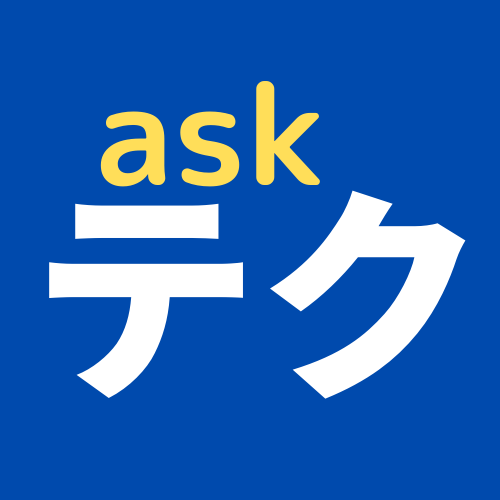目次
練習問題<分野:ビジネス、生活>
TOPIC
Do you think a four-day workweek should be implemented?
POINTS
● Work-life balance
● Productivity
● Economic impact
● Employee satisfaction
観点の説明
- Work-life balance(仕事と生活のバランス)
賛成:週休三日制を導入することで、従業員は家庭や趣味の時間を増やすことができ、心身の健康が向上する。
反対:仕事と生活のバランスは改善されるかもしれないが、業務の負担が増え、長時間労働が求められる可能性がある。 - Productivity(生産性)
賛成:研究によれば、短い労働時間でも集中力と効率が向上し、生産性がかえって上がる可能性がある。
反対:特定の業種では、労働時間の短縮が生産量やサービス提供に悪影響を及ぼし、生産性が低下する恐れがある。 - Economic impact(経済への影響)
賛成:週休三日制が普及することで、消費活動が増加し、サービス業などの新たな経済成長につながる可能性がある。
反対:労働時間の短縮により企業のコストが増加し、中小企業や労働集約型の業界にとって経済的な負担が大きくなる。 - Employee satisfaction(従業員の満足度)
賛成:余暇が増えることで従業員の満足度やモチベーションが向上し、長期的に見て従業員の定着率が高まる。
反対:すべての従業員が週休三日を望んでいるわけではなく、働き方の柔軟性が求められる中で一律の制度導入は問題になるかもしれない。
観点毎のキーワード
Work-life Balance
- Flexible schedules – 柔軟なスケジュール
- More personal time – より多くの個人時間
- Work-family conflict – 仕事と家庭の葛藤
- Burnout prevention – 燃え尽き症候群の防止
- Quality of life – 生活の質
- Reduced stress – ストレスの軽減
- Health benefits – 健康上の利益
Productivity
- Increased focus – 集中力の向上
- Efficiency boost – 効率の向上
- Shorter hours, less productivity – 短時間労働による生産性低下
- Task prioritization – タスクの優先順位付け
- Output optimization – 出力の最適化
- Reduced distractions – 仕事の妨げの減少
- Time management – 時間管理
Economic Impact
- Business costs – ビジネスコスト
- Labor market shift – 労働市場の変化
- Lower operational expenses – 運営費の削減
- Consumer spending – 消費者支出
- Impact on small businesses – 中小企業への影響
- Economic growth – 経済成長
- Increased hiring – 採用増加
Employee Satisfaction
- Higher job satisfaction – 仕事の満足度向上
- Employee retention – 従業員の定着率
- Job dissatisfaction – 仕事の不満
- Improved mental health – 精神的健康の改善
- Engagement in work – 仕事への関与
- Motivation boost – モチベーションの向上
- Workplace happiness – 職場の幸福度
週休3日賛成派の論理展開
【イントロダクション】
- トピックセンテンス: 一部の人は従来の5日間の勤務体系が必要だと主張するかもしれないが、私は4日間勤務を導入すべきだと考える。
- 論理展開: 4日間勤務は、ワークライフバランスの改善と生産性向上につながる。
【ボディ1】
- トピックセンテンス: まず、4日間勤務はワークライフバランスを大幅に改善する。
- 論理展開: 余分な1日があることで、従業員は家族との時間や趣味、休息に充てる時間を増やすことができる。この追加の時間がストレスを軽減し、全体的な幸福感を向上させる。
【ボディ2】
- トピックセンテンス: さらに、短い労働週は生産性の向上につながる可能性がある。
- 論理展開: 研究によれば、労働日数が少なくなると従業員はより集中し、効率的に働く傾向がある。疲れが取れ、ストレスが少ない従業員は、より早く質の高い仕事をこなし、結果的に会社にも利益をもたらす。
【結論】
- トピックセンテンス: 結論として、4日間勤務を導入することで、ワークライフバランスが向上し、生産性も高まるため、すべての関係者にとって有益な変化となる。
週休3日賛成派の回答例
While some people may argue that a traditional five-day workweek is necessary, I believe that a four-day workweek should be implemented. This would lead to improved work-life balance and higher productivity for employees.
To begin with, a four-day workweek would significantly improve work-life balance. With an extra day off, employees could spend more time on personal activities, whether it’s with family, pursuing hobbies, or simply resting. This additional time away from work reduces stress and enhances overall well-being.
Moreover, a shorter workweek could also lead to higher productivity. Research suggests that when employees have fewer working days, they tend to be more focused and efficient. Rested and less stressed employees can complete tasks more quickly and with better results, ultimately benefiting both the employees and the company.
In summary, adopting a four-day workweek would enhance work-life balance and boost productivity, making it a win-win for everyone involved. (147 words)
週休3日賛成派の日本語訳
伝統的な5日間の勤務が必要だと主張する人もいるが、私は4日間の勤務制を導入すべきだと考える。これにより、従業員の仕事と生活のバランスが改善され、生産性も向上するだろう。
まず、4日間の勤務制は、仕事と生活のバランスを大幅に向上させる。余分な休日があれば、従業員は家族と過ごしたり、趣味に打ち込んだり、単に休息する時間を増やすことができる。このような仕事からの時間がストレスを軽減し、全体的な幸福感を高める。
さらに、短い労働週は生産性の向上にもつながる可能性がある。研究によると、勤務日数が減ると、従業員はより集中し、効率的に働く傾向がある。十分に休息し、ストレスの少ない従業員は、タスクをより迅速かつ質の高い結果で終えることができるため、従業員と企業の双方に利益をもたらす。
結論として、4日間の勤務制を導入することで、仕事と生活のバランスが向上し、生産性も高まるため、すべての関係者にとって有益である。
週休3日反対派の論理展開
【イントロダクション】
- トピックセンテンス: 一部の人は4日間勤務が良いアイデアだと考えるかもしれないが、私はそれを導入すべきではないと考える。
- 論理展開: 4日間勤務は経済と従業員の満足度に悪影響を与える可能性がある。
【ボディ1】
- トピックセンテンス: まず、4日間勤務は経済に悪影響を及ぼす可能性がある。
- 論理展開: 労働日数が減ることで全体の生産性が低下し、特に製造業や顧客サービスなどの連続的な労働が必要な業界では、営業時間の減少が経済損失につながるかもしれない。
【ボディ2】
- トピックセンテンス: 加えて、従業員の満足度も低下する可能性がある。
- 論理展開: 休みが増えることを喜ぶ人もいるかもしれないが、同じ仕事量を短い時間で終わらせなければならないことでストレスを感じる人もいる。その結果、4日間の労働に負担がかかり、燃え尽き症候群や仕事の満足度の低下につながる可能性がある。
【結論】
- トピックセンテンス: 結論として、4日間勤務は経済に悪影響を及ぼし、従業員の満足度を低下させる可能性があるため、賢明な選択ではない。
週休3日反対派の回答例
While some people may think that a four-day workweek is a good idea, I believe it should not be implemented. This change could negatively impact both the economy and employee satisfaction.
First of all, a four-day workweek could harm the economy. Reducing the number of workdays might lower overall productivity, as businesses would have fewer hours to operate. This reduction could lead to financial losses, especially in industries that rely on continuous work, such as manufacturing or customer service.
In addition, employee satisfaction could decrease. While some may enjoy having more days off, others may feel stressed by the need to complete the same amount of work in less time. This could result in overworking on the four remaining days, leading to burnout and decreased job satisfaction.
In conclusion, a four-day workweek may have negative effects on the economy and could reduce employee satisfaction, making it an unwise choice. (149 words)
週休3日反対派の日本語訳
4日間勤務制が良いアイデアだと考える人もいるが、私は導入すべきではないと考える。この変更は、経済と従業員の満足度に悪影響を及ぼす可能性がある。
まず、4日間勤務制は経済に悪影響を与えるかもしれない。勤務日数が減少すると、企業の稼働時間が短くなり、全体的な生産性が低下する可能性がある。この減少は、製造業やカスタマーサービスなど、継続的な業務を必要とする産業にとって、特に大きな経済的損失を引き起こす可能性がある。
さらに、従業員の満足度が低下するかもしれない。休みが増えることを楽しむ人もいるかもしれないが、一方で、限られた時間で同じ量の仕事をこなさなければならないことにストレスを感じる人もいるだろう。この結果、4日間で過度に働くことになり、燃え尽き症候群や職務満足度の低下を引き起こす可能性がある。
結論として、4日間勤務制は経済に悪影響を与え、従業員の満足度を下げる可能性があるため、賢明な選択ではない。
今回の重要表現
単語を覚えるときは、類語・派生語も同時に覚えるのが時短上達のコツです。
賛成の立場のエッセイの語彙
- work-life balance (ワークライフバランス)
類義語: work-life harmony (ワークライフハーモニー), work-life integration (ワークライフインテグレーション)
派生語: work-life conflict (仕事と生活の対立) - enhance (向上させる)
類義語: improve (改善する), boost (強化する)
派生語: enhancement (向上、強化), enhanced (強化された) - rest (休息する)
類義語: relax (リラックスする), unwind (くつろぐ)
派生語: restful (休息の), restfully (穏やかに) - well-being (幸福、健康)
類義語: welfare (福祉), health (健康)
派生語: well (健康な), being (存在) - focused (集中している)
類義語: concentrated (集中した), attentive (注意深い)
派生語: focus (集中), refocus (再集中する) - efficient (効率的な)
類義語: productive (生産的な), effective (効果的な)
派生語: efficiency (効率), efficiently (効率的に) - output (成果、出力)
類義語: productivity (生産性), result (結果)
派生語: outputting (出力する), outputted (出力された)
反対の立場のエッセイの語彙
- harm (害を与える)
類義語: damage (損害を与える), hurt (傷つける)
派生語: harmful (有害な), harmless (無害な) - financial loss (財務損失)
類義語: economic loss (経済損失), deficit (赤字)
派生語: finance (財務), financially (経済的に) - rely on (~に依存する)
類義語: depend on (頼る), lean on (頼る)
派生語: reliance (依存), reliable (信頼できる) - continuous (連続的な)
類義語: ongoing (進行中の), uninterrupted (途切れない)
派生語: continuity (連続性), continuously (連続して) - overworking (過労)
類義語: burnout (燃え尽き), excessive work (過剰な労働)
派生語: overwork (過労する), worked-out (働き尽くした) - burnout (燃え尽き症候群)
類義語: exhaustion (疲弊), fatigue (疲労)
派生語: burn out (燃え尽きる), burning (燃焼する) - unwise (賢明でない)
類義語: foolish (愚かな), imprudent (軽率な)
派生語: wisely (賢明に), wisdom (知恵)
こちらの記事もおススメです:要約問題|携帯電話の歴史:長文・回答例・観点・言い換えリスト
英検準1級英作文対策はask本校のオンライン個別指導がおススメです。




